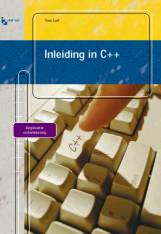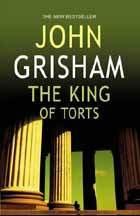SPELLING MISTAKES (2 june 2006)
Six years ago, I was asked to write a book about the programming language C++. The publisher thought it would be a good idea if I was assisted by someone who could deliver second opinions on my work, So I was assigned a so-called referent.

For the language, this referent was not of very much use to me. After all, he was a math teacher, and not only was language my job, it was my hobby as well. But he might be useful for correcting spelling mistakes and the like.
One of last chapters of the book dealt with sorting . When I sent the manuscript to the referent, it came back with the comment: "would be a good idea to describe the way structs are sorted." (in case you don't know what a struct is - it's a number of data with a fixed structure, for instance: name, address, postal code, year of birth, etc.)
So I followed his advice and did my best to describe the technique of sorting structs, which is not a very simple process. After all, you can sort the data by name, by address, by postal code, etc. But I wonder if the referent had realized this when he made his suggestion, for my work came back, completely uncorrected with the remark that the process of sorting structs was too diffcult for the students.
So what to do? I could either discard all the pages I had written just because my revered referent had delivered rather gratuitous advice.
Instead, I opted for the alternative (no, not to kill the referent for his ill-considered advice) and decided to keep the text and be my own referent and corrector.
Unfortunately, the date when the book had to be printed was very close and the correcting work suffered severely because my revered referent had left me with a big heap of uncorrected text.
I still have my nightmares about the number of mistakes I found in the book after it had been printed.
But last week I read a book that as far as spelling mistakes is concerned shot my record to pieces. It was John Grisham's The King of Torts published by Arrow books, Random House.

Were it not for the abundance of spelling mistakes, the book would have been quite pleasant to read: a typical Grisham legal fairy tale. I haven't counted the errors, but if anybody told me there were more than a thousand, I wouldn't at all be surprised.
The book continuously kept me wondering if it had been typed by someone who did not understand English, or whether the computer program used to produce it had severe errors, or maybe the type-setting had been done by chimpanzees (as well as a few other options).
Whatever the case may be, this book is a prime candidate for the title of book-with-the-most-printing-errors in The Guinness Book of Records.
Just in case you're wondering what the book is about, here's the blurb:
The Office of the Public Defender is not known as a training ground for bright young litigators. Clay Carter has been there too long, and, like most of his colleagues, dreams of a better job in a real firm. When he reluctantly takes the case of a young man charged with a random street killing, he assumes it is just another of the many senseless murders that hit Washington D.C. every week.
As he digs into the background of his client, Clay stumbles upon a conspiracy too horrible to believe. He suddenly finds himself in the middle of a complex case against one of the largest pharmaceutical companies in the world, looking at the kind of enormous settlement that would totally change his life - that would make him, almost overnight, the legal professions's newest king of torts ...